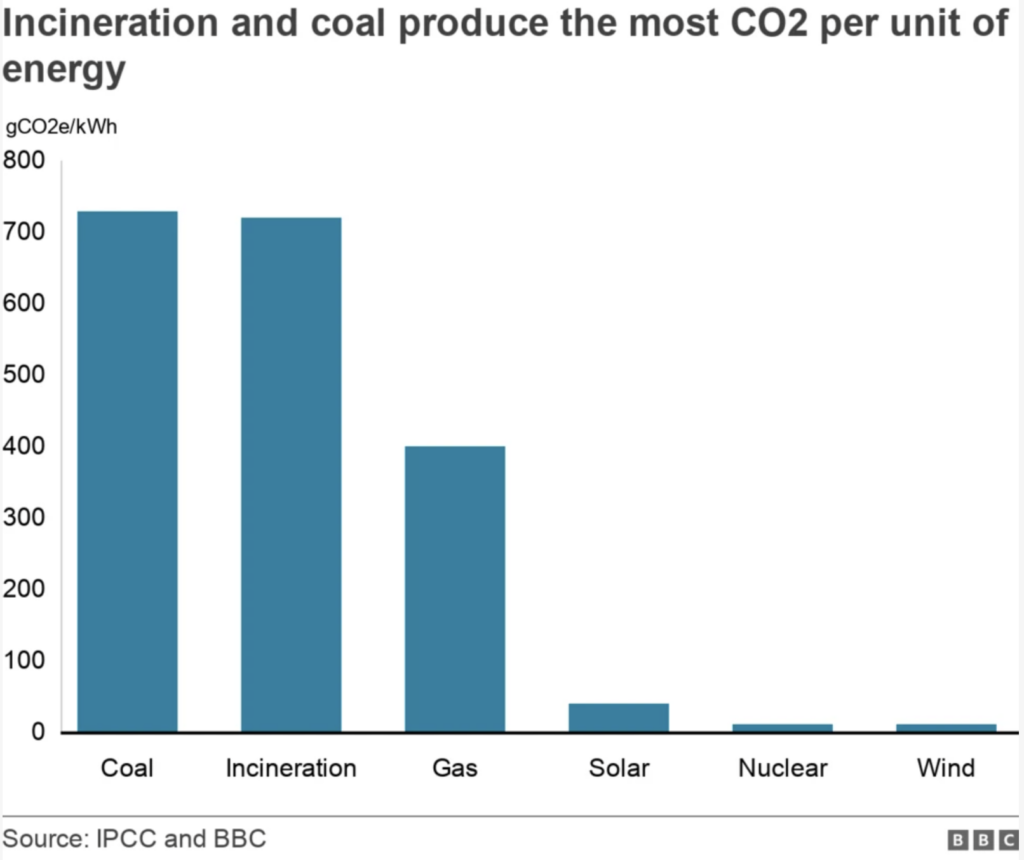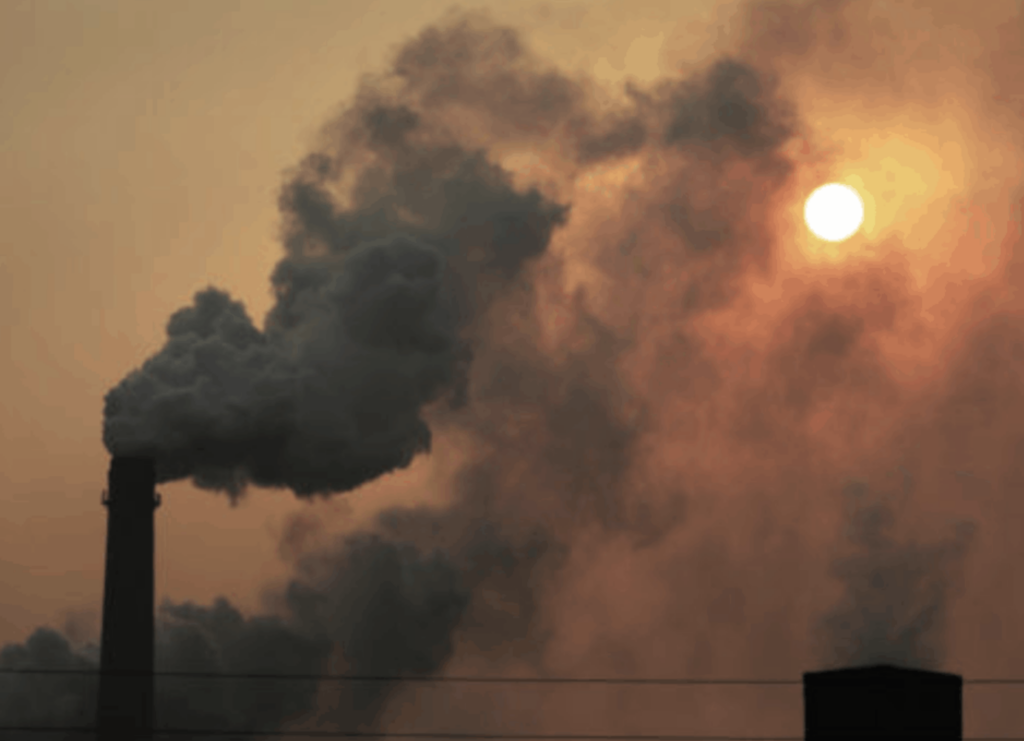According to recent analysis undertaken by the BBC, it’s been reported that burning household rubbish in incinerators is the most polluting way to generate electricity.
While household waste may not directly be a fossil fuel like coal, where the last coal-fired power station closed last month, the burning of rubbish, including plastics, partly made up of fossil fuels, is being fed to incinerators around the UK to generate electricity. Nearly half of UK household waste is incinerated, which will negatively impact climate change. Around 3% of UK electricity comes from incinerated waste, and the number of incinerators has increased in recent years, rising from around 38 in 2019 to 51 in 2024.
A key reason for the increase in incinerators was to reduce pressure on landfills. They were considered the greener option. While burning waste food is generally not an issue, the burning of plastic items is. Plastic is made up partly of fossil fuels and produces toxic gases when burnt, producing high levels of greenhouse gases.
While a household with an Ecodesign stove may not quite have the same emissions levels as a council incinerator, we regularly stress the importance of not burning rubbish and only burning seasoned wood to make sure you keep your carbon footprint as low as possible.
The diagram below, produced by the IPCC and BBC, demonstrates the CO2 emissions given off by incinerators and how they are very close to emissions from coal burning.

The problem with coal
Coal is a complex mix of various chemicals; it doesn’t burn as cleanly as natural gas, and not all the carbon gets converted into carbon dioxide and water. A lot of coal smoke contains half-burnt particles of carbon, sulfur oxide, nitrogen oxides, and lots of other organic molecules formed in the process of burning. All these have dire implications for us and our environment, leading to global warming – the main problem with coal.
The problem with plastic
Plastic, like coal, is harmless. The problems begin when it burns. We can see from the points above that coal produces toxic particles when burnt. It’s a similar case when plastic is burnt. When plastic burns, it produces things like microplastics, bisphenols, and phthalates. Plastic is mostly made from oil and gas products, so burning it is essentially like burning fossil fuels. For every tonne of dense plastic burned, more than two tonnes of CO2 are released into the atmosphere.
The UK Climate Change Committee warns that incineration will make up an increasing part of emissions from electricity generation.

Climate Change
Many climate scientists now expect global temperatures to increase to 2.5c as a minimum, above pre-industrialised levels before the end of the century. Even more concerning, almost 50% expect at least a 3C increase above pre-industrialised levels. Sadly, only 6% agreed that the 1.5c limit would be met.
What are Greenhouse Gases?
Greenhouse gases are any type of gas in the atmosphere that stops heat from escaping. With regard to your carbon footprint and general climate change, the main problem gases are carbon dioxide, nitrous oxide, and methane. All contribute to global warming.
The greenhouse effect is the process by which these greenhouse gases trap heat from the sun. Keeping some heat from the sun is what makes our planet abundant with life. However, these gases cause too much heat to be trapped. The result of this is climate change – possibly the most deadly threat to human existence, and it’s happening now.
The Climate Change Committee (CCC) have proposed a list of ten recommendations which will help drive the UK 2030 target forward:
1. Make electricity cheaper. Removing policy costs from electricity prices will support industrial electrification and help lower the running costs of heat pumps compared to fossil-fuel boilers.
2. Reverse recent policy rollbacks. Remove the exemption of 20% of households from the 2035 fossil-fuel boiler installation phase-out, address the gap left by removing obligations on landlords to improve the energy efficiency of rented homes and reinstate the 2030 phase-out of new fossil-fuel car and van sales.
3. Remove planning barriers for heat pumps, electric vehicle charge points and onshore wind.
4. Introduce a comprehensive programme for decarbonisation of public sector buildings.
5. Effectively design and implement the upcoming renewable energy CfD auctions. Ensure funding and auction design for the Sixth and Seventh Allocation Rounds are appropriate to deliver at least 50 GW of offshore wind by 2030.
6. Accelerate electrification of industrial heat. Strengthen the UK Emissions Trading Scheme to ensure that its price is sufficient to incentivise decarbonisation and that support is available for a rapid transition to electric heat across much of industry.
7. Ramp up tree planting and peatland restoration. Tree planting must be scaled up in the 2020s for abatement to be sufficient for later carbon budgets and Net Zero. There must be no more delays to addressing the barriers to delivery.
8. Finalise business models for large-scale deployment of engineered removals. Finalise and open to the market the business models for engineered removals.
9. Publish a strategy to support skills. Support workers in sectors which need to grow or transition and in communities that may be adversely impacted.
10. Strengthen NAP3 with a vision that sets clear objectives and targets and reorganise government adaptation policy. Adaptation must become a fundamental aspect of policymaking across all departments and be integrated into other national policy objectives.








